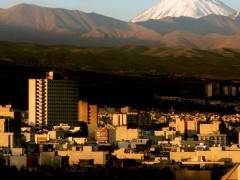据石油世界期刊4月5日布宜诺斯艾利斯报道,阿根廷能源部长Dario Martinez表示,阿根廷预计价格激励计划将在未来几年扭转天然气产量下滑的局面,但今年LNG进口量将增加,包括可能通过第二个浮动存储和再气化装置(FSRU)。
他在3月30日晚些时候接受当地电视台Telefe Neuken采访时表示,生产商正在投资(天然气)资源。我们希望创造一个良性循环,确保阿根廷获得更多天然气,减少天然气进口。
政府在去年12月启动了奖励方案,建立了长期天然气供应合同拍卖制度,目标是每年向分销商和发电厂预售7000万立方米/日(平均消费量为1.4亿立方米/日的一半)的供应,加上5-9月寒冷月份的额外量。在第一次招标中,以平均3.50美元/百万英热单位的价格授予了6700万立方米/天的供货合同,而在第二次招标中,以约4.70美元/百万英热的价格额外授予了450万立方米/天的寒冷季节交货合同。
根据数据显示,2月份天然气产量从2019年7月的最新峰值1.444亿立方米/日下降21%至1.145亿立方米/日,主要原因是价格从2019年的3.50美元/百万英热单位下降至2020年的2.50美元/百万英热单位以下,该业务利润降低。
随着需求在冬季达到1.8亿立方米/天的峰值和经济从2020年的衰退中复苏,今年的进口量可能会从2020年的日均1990万立方米/天增加,以避免短缺。阿根廷央行2月底对经济学家进行的一项调查显示,在2020年经济预计下降11%后,今年经济有望增长6.2%。
郝芬 译自 石油世界期刊
原文如下:
Argentina to incentive gas output,LNG imports to raise
Argentina's government expects a pricing incentives program will turn around a slide in natural gas output in the next few years, but LNG imports are poised to rise this year, including via a possible second floating storage and regasification unit (FSRU), Energy Secretary Dario Martinez said.
"Producers are investing in [gas] resources," he said late March 30 in an interview with Telefe Neuquen, a local TV broadcaster. "We want to create a virtuous cycle that guarantees more gas for Argentina and reduces gas imports."
The secretariat launched the incentives program in December, creating a system of auctions for long-term gas supply contracts with the goal of pre-selling 70 million cu m/d — half of the 140 million cu m/d of average consumption — of supplies each year to distributors and power plants, plus additional amounts during the cold months of May to September. In the first tender, contracts were awarded for supplying 67 million cu m/d at an average of $3.50/MMBtu, while in the second an additional 4.5 million cu m/d was awarded for deliveries during the cold season at about $4.70/MMBtu.
The commitments come after gas output dwindled 21% to 114.5 million cu m/d in February from a most recent peak of 144.4 million cu m/d in July 2019, largely because a decline in prices to less than $2.50/MMBtu in 2020 from $3.50/MMBtu in 2019 made the business less profitable, according to data from the secretariat.
With demand peaking at 180 million cu m/d in the winter, imports likely will increase this year from an average of 19.9 million cu m/d in 2020 to avert shortages as the economy recovers from a slump in 2020. The economy is poised to grow 6.2% this year after an estimated 11% contraction in 2020, according to a late-February survey of economists by Argentina's central bank.





